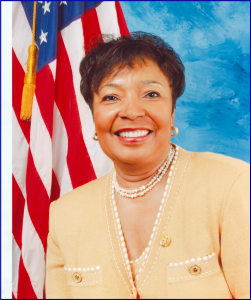Virginia State Senator Creigh Deeds became an early supporter of Rep. Tim Murphy’s Help Families in Mental Health Crisis Act precisely because it promised to give families access to important medical information. Deeds had been unable to find a hospital bed for his son and to access his mental health records before the 24-year-old attacked him with a knife in 2013–and later killed himself.
The situation is all too frequent that families of adult children with mental health issues cannot help their children and are shut out of treatment programs. Privacy law leaves loved ones on the sidelines — with tragic results. The HIPAA Privacy Rule, passed in 1996 to keep health care information private, has repeatedly been an obstacle to Mental Health Care and Substance Use Disorder Treatment. We recommend that Congress not pass H.R.2646 because the Act doesn’t loosen the Health Information Portability and Accountability Act (HIPAA) rules to provide for better family access to medical records.
The elephant in the room is that most Americans still don’t know what people throughout the world recognize —that marijuana use may be a trigger for their family member’s bipolar or schizophrenia diagnosis.
The version of the bill that goes before House vote this week authorizes for more study on how to give limited information to family without consent when a loved one is incapacitated. In other words, it’s a bill that leaves out the most important part of the bill to many of its original supporters!

If your child is age 14 + and has a substance use issue or a psychiatric issue, parents may be prevented from knowing if there is any substance use or abuse. How many parents / families would really use this information against their child? Families are better equipped to be the judges of care than the government, or some impersonal hospital treatment center.
Since it’s likely that Congress will pass the CARA Act to prevent addiction overdose deaths, it’s time think holistically. Could a reason there are more than 47,000 substance abuse deaths per year be that parents often don’t know when their children are using drugs, or that they have no idea when drug use begins?
HIPAA Privacy Law and Substance Abuse

We laud Rep. Murphy, a psychologist in Congress, for taking action to improve mental health delivery Having a practicing psychologist in Congress adds a knowledgeable human dimension to the problem. The key co-sponsor of the bill is Rep. Eddie Bernice Johnson of Texas, a psychiatric nurse. Both Representatives Murphy and Johnson repeatedly attempted to educate Congress and bring numerous families forward who were hampered by HIPAA Privacy Rule.
A whole new bill to reform the HIPAA Privacy Rule with regards to Mental Health and Substance Use Disorder is called for at this time.
Aren’t parents who are trying to get children off drugs or into treatment trying to save their lives? If a child or teen signs for parents or guardians to have this information, they can learn about substance use or diagnosis. However, a child may refuse and hospitals/doctors are bound by HIPAA law not to tell. Substance users often don’t see that they have a problem and don’t want to give up their use of drugs. Denial is a part of addiction.
Practicing medicine is more art than science. Psychiatric treatment in the United States is imprecise, hit or miss and often determined by insurance companies. The DSM Manual for Psychiatry is frequently revised. Sometimes when a first episode of psychosis is triggered by marijuana, psychiatrists are quick to jump the gun and prescribe heavy anti-psychotics instead of getting the user off of marijuana.
Patients can refuse to take medications and they have the freedom to do that. Anthony Hernandez supported Murphy’s bill because his son Aaron killed the family dog and stabbed his mother at age 19. Stronger mental health care laws forcing treatment would have protected the family. It had been impossible for the Los Angeles family to force their son Aaron — who had begun using marijuana in middle school – into treatment. As there were other family members with mental illness, no one knows for sure if Aaron could have avoided his condition (paranoid schizophrenia) by never touching marijuana and hallucinogens. Certainly schizophrenia comes at a younger age to those who use marijuana and it makes the condition much more severe.
Decrease Substance Abuse to Decrease Mental Illness
The best way we can decrease mental health problems in this country is by decreasing substance abuse. Again and again studies note that violence is associated with substance abuse more than psychiatric disability. People who abuse substances are more likely to be violent, with or without a diagnosed mental disorder.
Parents Opposed to Pot believes that educating children in early elementary school about the organic brain changes that come with substance use and abuse will cut down violence and mental illness in the United States by 25-40%. The United States has less than 5% of the world’s population, almost 60% of the world’s drug users and nearly 25% of those incarcerated. Yet people deny that our nation’s rate of incarceration reflects the fact that so many people commit crimes when they use drugs.
Psychiatric Illness Without Drug Abuse
As for patients with mental illnesses who do not abuse substances, passing HR 2646 without changing HIPAA would give unprecedented power to the psychiatric profession. Congress should not allow it. The USA Today article explaining the problem, suggests that the ACLU and NAACP, two organizations which are sympathetic to drug legalization, stand in opposition to changing HIPAA Rule. If domestic violence groups also don’t allow openness about medical history, they also may be standing in the way of compassion offered by family members who would naturally care more about the patient than a psychiatric hospital.
Rep. Murphy said that under HIPAA, families are often treated “like the enemy,” His original plan was to allow health providers to disclose a patient’s diagnosis, treatment plan, appointment schedule and medications to a “responsible caregiver,” if the patient has a serious mental illness, and if the information is needed to “protect the health, safety or welfare of the individual or general public.” The bill did not allow providers to share psychotherapy notes. It was meant to safeguard continuity of treatment, especially for those who would be gravely disabled in the absence of treatment.
H.R.2426 mandates a presidential appointee who is an assistant secretary for mental health and substance use disorders, a senior leadership position in the U.S. Department of Health and Human Services (HHS). The current agency Substance Abuse and Mental Health Services Administration (SAMHSA) is an important agency which does a very important job.


